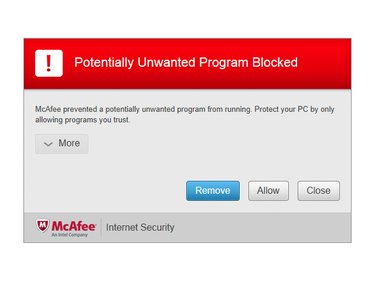
When launching certain applications, McAfee's real-time security module may detect false positives and prevent the applications from running normally. To ensure you don't end up with misleading pop-up warnings or improperly quarantined files, add your trusted applications to the McAfee Real-Time Scanning's exclusions list. Further, if any applications have trouble connecting to online services, add those applications as exceptions to the McAfee firewall to grant them uninterrupted access to the Internet.
Excluding Trusted Applications
Video of the Day
Step 1
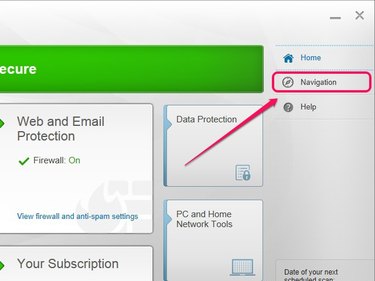
Open your McAfee AntiVirus Plus, Internet Security or Total Protection application, and then click the Navigation option.
Video of the Day
Step 2
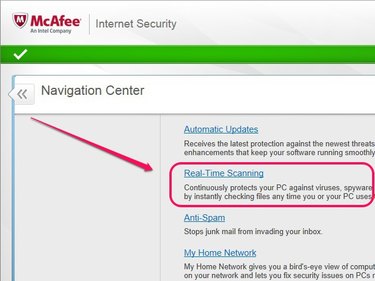
Scroll down in the Navigation Center and then select Real-Time Scanning.
Step 3
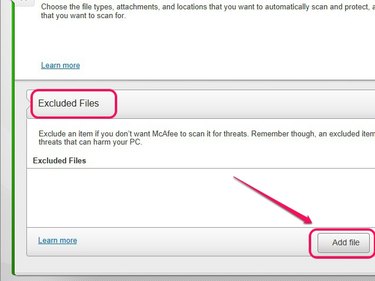
Select Excluded Files and then click the Add File button.
Step 4
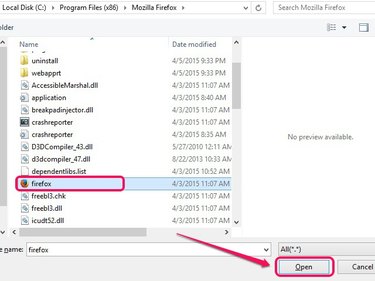
Select the executable file of the application that you want to add, and then click Open. For example, to add Mozilla Firefox as a trusted application, navigate to the Mozilla Firefox folder, located by default under the Programs Files or Programs Files (x86) folder of your Windows installation, and then select the Firefox file.
Step 5
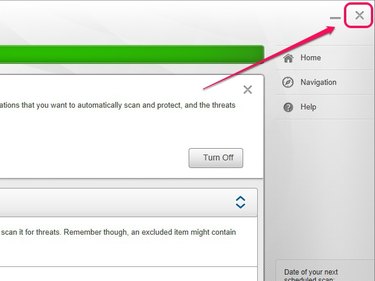
Exit the McAfee application to save the changes.
Allow Applications Through Firewall
Step 1
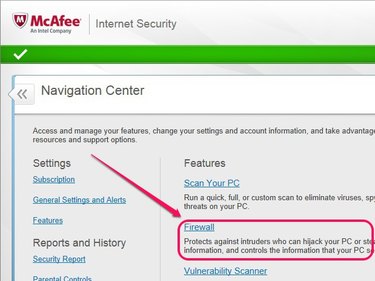
Open the Navigation Center on your McAfee AntiVirus Plus, Internet Security or Total Protection application and then select Firewall.
Step 2
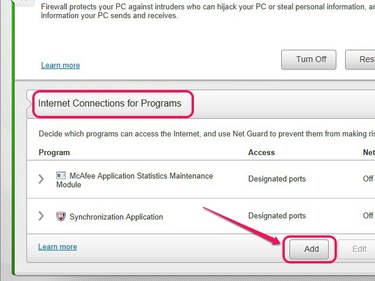
Select Internet Connections for Programs and then click the Add button.
Step 3
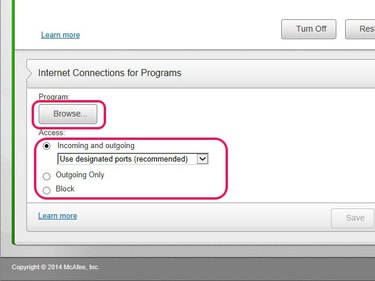
Use the Browse button to select the executable file of an application. Select Incoming and Outgoing to grant the application full access through the firewall, or select Outgoing Only to only allow outgoing traffic.
Step 4
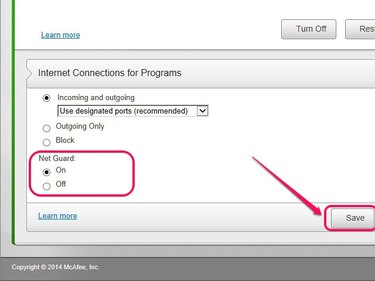
Click Save to grant the application access through the McAfee firewall. To prevent the application from connecting to risky domains, you can set McAfee's NetGuard feature to On before clicking Save.